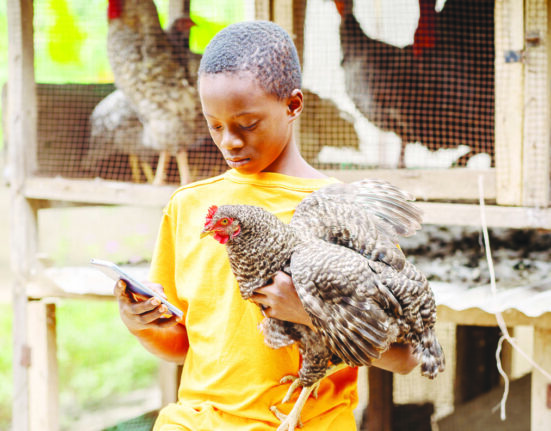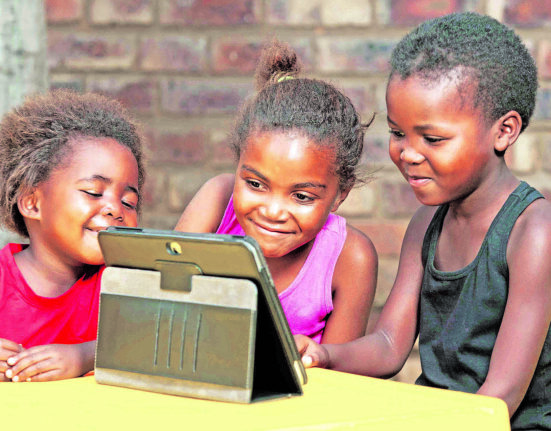
(Published on Wednesday, February 9, 2022)
By Nelson Kiva
In 2019, Ruth Elizabeth Namutebi caught media attention when she wrote to many prominent personalities worldwide, including former US President Barrack Obama, seeking support for her education.
Namutebi has a diploma in architecture and since 2016, she has been seeking to upgrade.
In 2019, she was admitted to the University of Nairobi in Kenya for a degree in architecture. However, she could not afford the $2,000 tuition per semester for the six-year programme.
The 30-year-old explains that by the time she secured the Nairobi admission, she had lost out on a number of fully paid-up scholarship programmes because she is HIV-positive, after having been born with the condition.
“When I got my admission letter from the University of Nairobi, I wrote to whichever big person I thought about in this country and outside. I spent the whole of 2019 writing letters to prominent personalities, ranging from Winnie Byanyima (executive director of UNAIDS) to Barrack Obama, Rebecca Kadaga (the First Deputy Prime Minister) to Nakiwala Kiyingi (Minister of State for Youth and Children Affairs) until I gave it a break,” she said.
Her efforts were not in vain as Namutebi says she kept getting scholarship opportunities in China, Japan and India, among other countries, but was always turned down after establishing her HIV status.
“Many Asian countries do not welcome people living with HIV and it is not negotiable. So, I got opportunities, but they could not go through due to my status,” she said.
Observing this trend, Namutebi also adopted a strategy of making media appearances seeking support, which she got, although some individuals would back out of their pledges.
One such unfortunate incident was when she applied for a vacancy at the Uganda Martyrs University after she was promised sponsorship.
However, immediately she got the admission, the funder backed out, saying they could not afford the tuition fees that were higher than anticipated.
Finally, lady luck smiled on Namutebi when she got a full scholarship at the International University of East African (IUEA) to pursue a bachelor’s degree in architecture.
“I landed on this opportunity after meeting with the Architecture Society of IUEA when I visited the university as a motivation speaker,” she says.
“I am over the moon. I have never felt this worthy,” Namutebi said.
According to the vice-chancellor of IUEA, Prof. Emeka Akaezuwa, the scholarship was granted to Namutebi in the spirit that every child should be aided to realise their potential, regardless of their social, economic or health status.
LONG WAIT TO JOIN UNIVERSITY
She admits that her HIV status was not the only stumbling block to joining university. She cites her low grades, in universities, such as Makerere and Kyambogo.
Namutebi attributes her low grades to the stigma she suffered while in secondary school, owing to her HIV status.
She said her woes started after she disclosed her status to a friend.
“While trying to seek acceptance, I disclosed my status to a friend and before the end of that day, the news had spread all over the school,” she says.
According to Namutebi, she suffered stigma right from Senior Two to Senior Six, adding that at some point, she left the school, which was Muyenga High and switched to other schools.
EVERY CHILD NEEDS SUPPORT
Prof. Emeka Akaezuwa, the vice-chancellor of IUEA, says the scholarship was granted to Namutebi in the spirit that every child should be aided to realise their potential, regardless of their social, economic or health status
However, upon switching school to Kakungulu Memorial, she met OBs and OGs who knew about her status and spread the information. “That is how the stigma grew from being negligible to everyone’s business. This situation was aggravated by the fact that I was struggling to sustain my family since my father was financially struggling.
“I had to keep in and out of school and make sure that the family had food, paid rent and other utilities,” Namutebi said. She said at a certain point, she would no longer stay in boarding school all the time, so she asked the senior woman teacher to allow a day-boarding arrangement.
“I ended up being at school on Mondays to Wednesdays and on Thursdays to Sundays, I would keep home making sure there was food on the table and that bills are paid,” she said.
According to Namutebi, learners living with HIV need support in regard to their mental health so that they keep strong against depression and suicidal thoughts.
“That is why for me, mental health comes first, no matter what and that is why I have many mentors and coaches who have helped me walk this path. If I had walked alone, I would probably not be here today,” she said.
It is on this ground that she emphasised that learning institutions should provide a conducive environment to learners living with HIV/AIDS, given the fact that they can be affected by simple things, such as fatigue. She disclosed that despite the country putting a lot of emphasis on creating awareness, there is need for schools to have more counselling programmes.
“In most of the schools where I have been hosted to share with students, I have noticed that counselling is not given the attention and resources it deserves,” she said.
Findings of the study conducted by Anne Katahoire and Edward Kirumira on the impact of HIV and AIDS on higher education institutions with support from UNESCO some years back, it was established that management at different institutions did not appear to consider HIV/ AIDS a major problem, partly because they were facing more visible and competing problems, such as inadequate resources, low staff salaries and inadequate infrastructure, among others, which they considered to be of greater urgency.
Dr Daniel Byamukama, the head of prevention at the Uganda AIDS Commission, stressed that ending AIDS by 2030 requires ending inequality first in all its forms.
“Inequality is being singled out as a major sabotaging force towards achieving national and global goals against HIV/AIDS targets and that is why world leaders have since committed to addressing all kinds of discrimination, stigma and human rights violations,” he said.
OTHER VENTURES
Namutebi is engaged in advocacy on HIV and sexual reproductive health and rights. She also runs an NGO called Dalia Kaitesi Safe Space for People Living with HIV. “I am starting to venture into entrepreneurship after participating in different business ventures,” she said.








Leave feedback about this